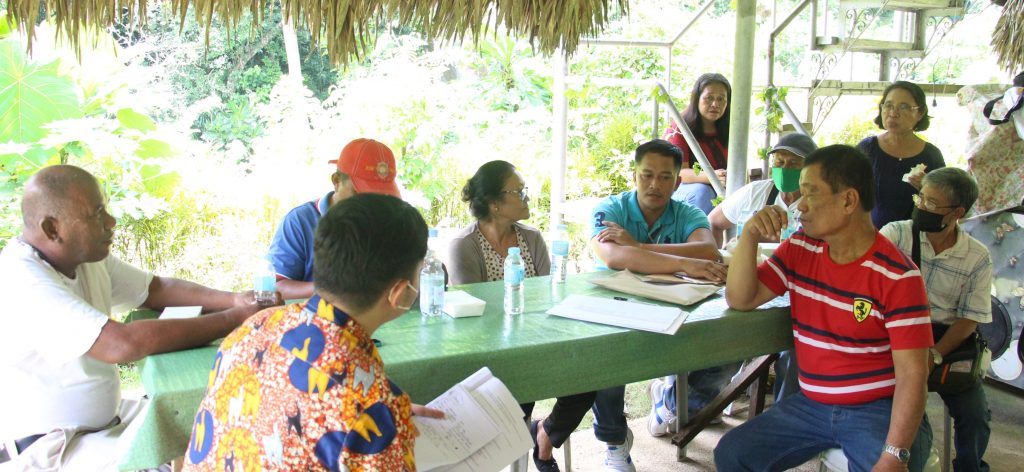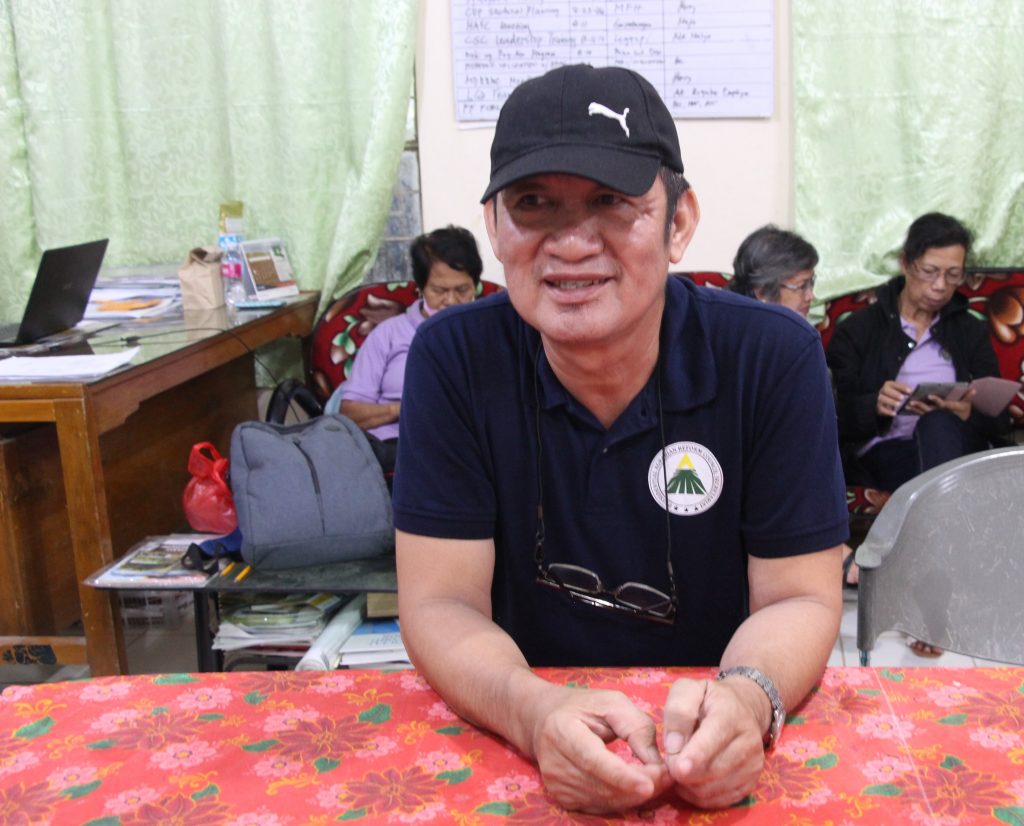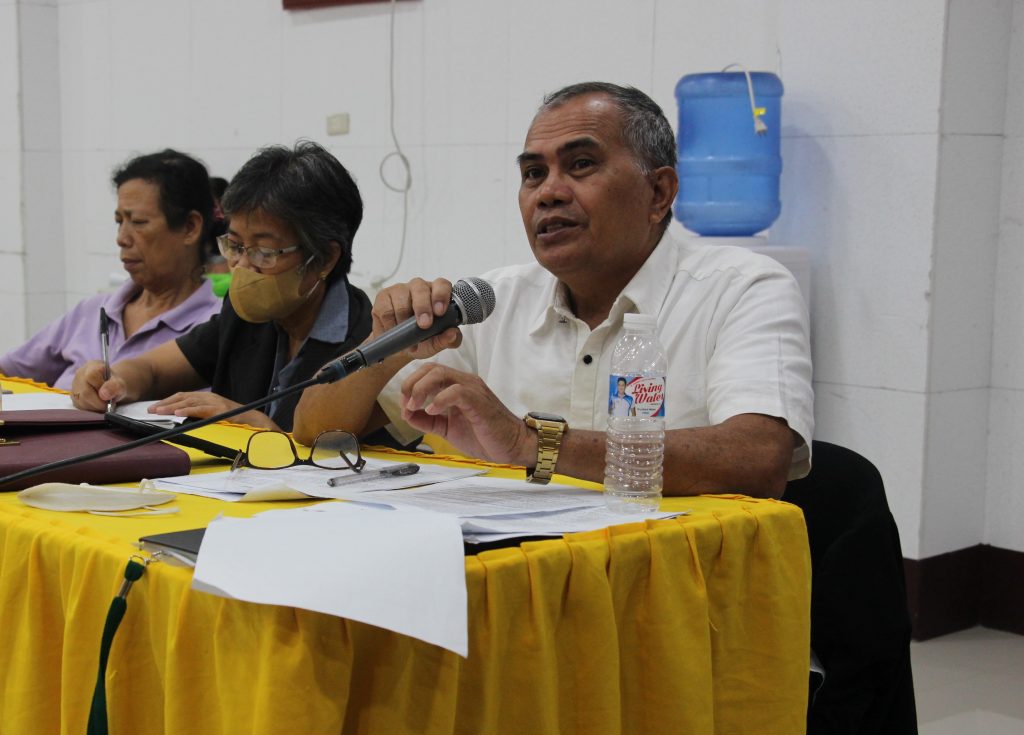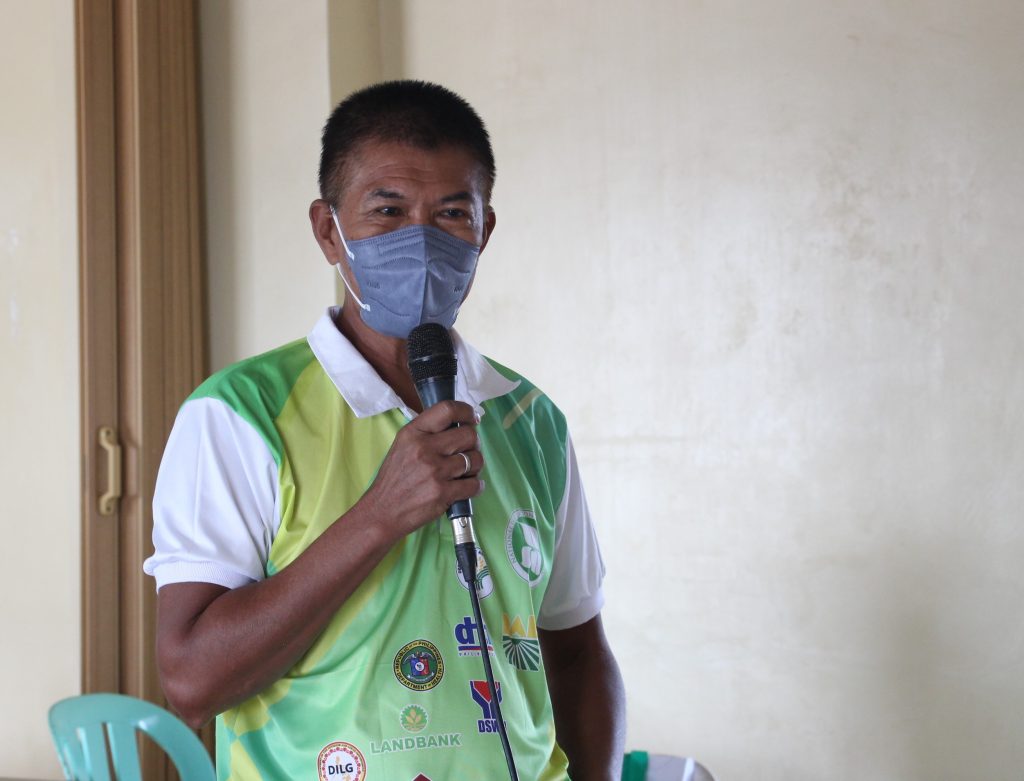Pakikisama is a typical trait of a Filipino, in its simplest sense meaning “getting along with others”1. The word entails a genuine intrinsic appreciation of togetherness. Group harmony and unity is valued2. Pakikiisa means “being one with” . It is considered as the highest level of Filipino social interaction3. --------

Julian Martinez, the Municipal Agricultural and Fishery Council (MAFC) Chairperson of the town of Basud, Camarines Norte, retired early from his corporate job to pursue farming since it is his childhood passion.
Little did he know that being involved with the Agricultural and Fishery Councils (AFCs) would also fulfill another passion of his— helping others.

MAFC Chairperson Martinez’s story showcases how the vibrant and dynamic AFCs from the Bicol Region, through their selfless cooperation and the two-way commitment between the AFCs and the government, have overcome numerous challenges, including recovering from the pandemic, the rising prices of agricultural inputs, and the constant threat of natural disasters.
Pakikisama: AFCs as a Platform for Cooperation
AFCs from the Bicol Region, having some of the most active AFCs in the country, demonstrated that through cooperation and looking out for one another, they can perform well even if they are from far-flung areas and receive limited funding.
“Pakikisama” with fellow AFC members, according to MAFC Basud Chairperson Martinez, is integral in leading an AFC.
He values their local culture and customs, and this is reflected in MAFC Basud’s flexibility and accommodation in their meetings, considering that a significant number of farmers and fishers in their region are not yet organized.
MAFC Chairperson Martinez also conducts mobile meetings to reach more stakeholders and to address funding issues.
“Mobile meetings helped us in seeing the real situation of our local farmers and fisherfolk, fulfilling our obligation to bring government agencies closer to our members,” he added.
Through giving their members a platform for cooperation, MAFC Basud has proactively conducted tree-planting and mangrove planting activities to improve disaster resiliency, with Bicol being a disaster-prone region.
AFC members from PAFC Camarines Norte, led by Chairperson Benedicto Palmares, also values cooperation through conducting tree and mangrove planting activities. They are responsible for tending fish sanctuaries in their province, which are threatened by buli-buli operations, an illegal fishing method.

On the other hand, to ensure environmental sustainability in their area, MAFC Talisay, led by Chairperson Roberto Abierta, also created fish hatcheries and sanctuaries.
In terms of responding to local agri-fishery concerns, MAFC Libmanan, led by Chairperson Armando Evangelista, consistently reaches out to other MAFC members to help them with their issues and become more effective in addressing these.
With their renewed sense of cooperation, MAFC Libmanan even supported their LGU during the height of the COVID pandemic by ensuring food supply availability in their communities through giving out vegetables.
Pakikiisa: AFC as a Bridge for Government Projects
Acting as bridges of Department of Agriculture’s (DA) programs and projects to the farmers and fishers at the local level, Bicol Region’s AFCs have continued to be one with the government in its commitment to uplift the lives of ordinary farmers and fishers. Being one with the government has enabled the Bicol Region AFCs to respond better to the needs and issues of their communities.
As a believer that AFCs should serve as a bridge between the government and farmers for policies and programs, MAFC Basud Chairperson Martinez advocates for more informed choices and better regulations and programs in the agri-fishery sector.
According to him, helping small farmers and fishers voice out their concerns and to benefit from government projects is considered a “simple fulfillment”.
Since sustaining the operations of AFCs demands resources, especially when reaching members from far-flung areas, AFCs from the Bicol Region have coordinated with their respective LGUs for assistance.
Improving and increasing project proposals sent to LGUs and concerned agencies is the key for MAFC Talisay to respond better to their local agri-fishery issues. Their recently approved resolutions have led to the provision of patrol boats used against illegal fishers, improved drainage, and more agri-fishery machinery.

Provincial Agricultural and Fishery Council (PAFC) Camarines Norte has also emphasized the value of attending DA’s training and sharing them with other farmers and fishers in their area. PAFC Camarines Norte Sectoral Chairpersons share the knowledge and even the farm inputs they acquire during training from DA.
PAFC Camarines Norte Chairperson Benedicto Palmares and their officers shared that this is the most important and fulfilling part of being in an AFC, as AFCs provide farmers representation by relaying their issues to concerned government agencies and being their “sandalan”.
Through “pakikisama” with one another and “pakikiisa” with the government, AFCs have helped farmers and fisherfolk in their communities in overcoming their challenges.
The undying spirit of cooperation among our AFCs truly shows that by having faith in one another and by also having faith in the government, AFCs are truly the champions of inclusivity, transparency, and accountability in our nation’s agri-fishery sector. | SBM
—-
- Pakikisama (Social Life and Interactions), 2006,
http://www.language.berkeley.edu/ucfcp/unit4/intro.php - Pakikiisa: A Filipino Trait, 2010,
http://repository.ris.ac.jp/dspace/bitstream/11266/5196/1/shinrikenkiyo_008_045.pdf - Sikolohiyang Pilipino (Filipino psychology): A Legacy of Virgilio G. Enriquez, 2000, https://onlinelibrary.wiley.com/doi/pdf/10.1111/1467-839X.00054











